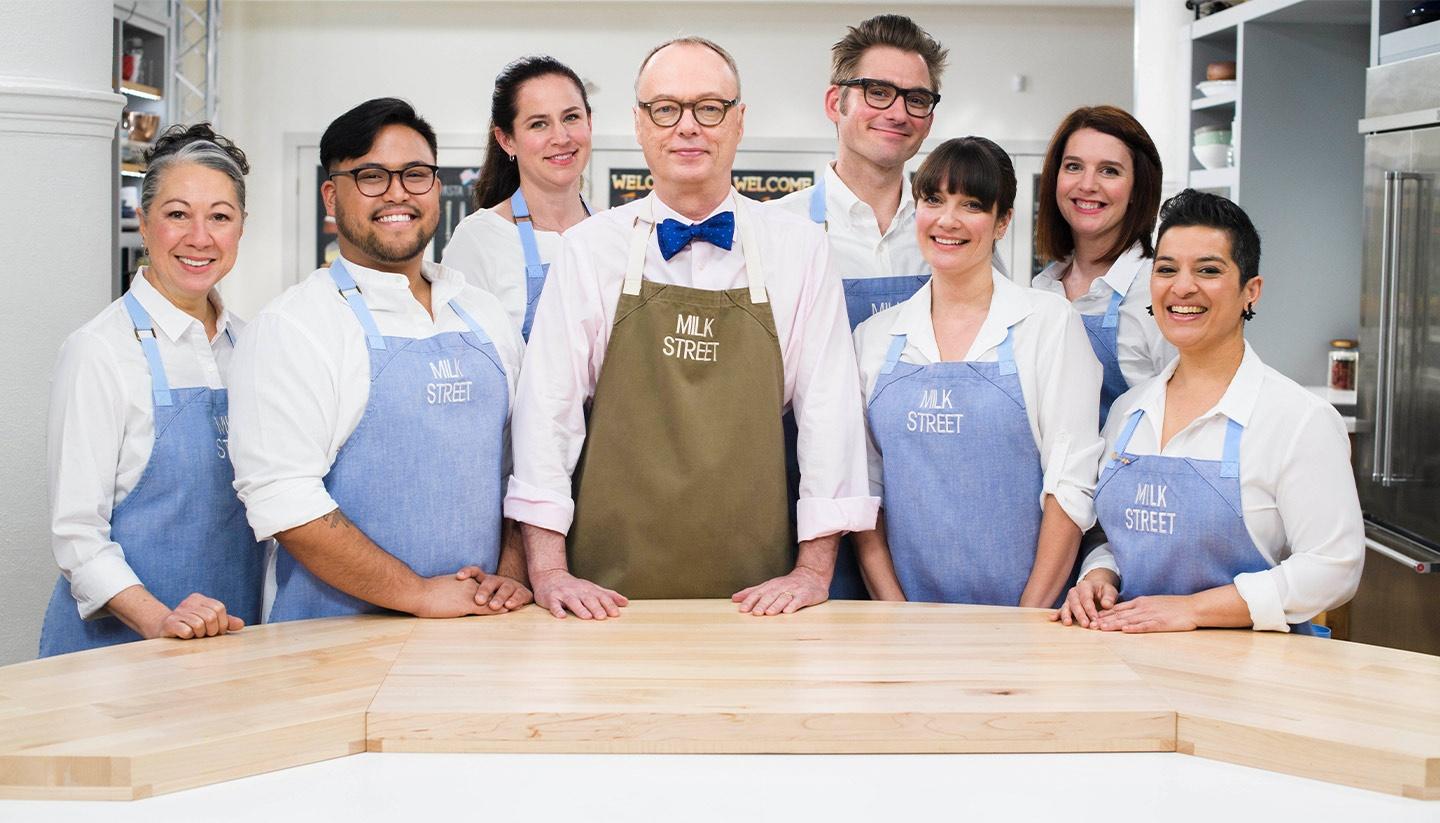We chatted with Christopher Kimball about the new season of Milk Street, his thoughts on cooking at home, and his new cookbook, COOKish.
Cooking enthusiasts are no doubt familiar with Christopher Kimball. His recipes and approach to food are uniquely his own. Through Milk Street, he has turned into a household name for food enthusiasts. Milk Street is a fully thought out concept. It's a magazine, a cooking school, a go-to website for recipes and blog posts. They have a radio show - and of course - the much-loved program, Milk Street. This new season offers an invitation to the cooks of the world (which aren't we all, really?) to sit at the same table. There are enduring kitchen values that travel easily from Saigon to Kiev to London to New York to Oklahoma. That's Milk Street's philosophy, and one we certainly agree with.
Season 4 of Milk Street premieres Saturday, September 12, at 9:30 am on OETA.
OETA: Many people throughout the world have spent much of this year at home. An optimistic way of describing 2020 would be “the year of hobbies!” Cooking seems to be the main hobby or something that people haven’t tried much before, but are giving it a go now. Why is cooking so therapeutic and joyful?
Christopher Kimball: Cooking is the last thing that we can do with our hands. It is a consumable craft with immediate results. What this year has done is to force folks to cook at home - something that they avoided because it was inconvenient - and now they find that the effort is worth it. It is like riding a bike to work instead of taking a car; it is a different, more fulfilling experience. And that is true across the board with our modern lives - there are so many things that we do not HAVE to do anymore but should do for a richer, more satisfying life.
OETA: What are some of the “kitchen values” that you feel are shared globally? Milk Street is, “...about the culinary - not cultural - exchange,” according to your website. It’s a nice sentiment. That no matter where a person is from or their beliefs, we can all sit around at a table and share a love of food, together.
Christopher: There has been a misconception about food from other places in the world. It has been considered “ethnic” (a term I dislike) and therefore something apart from normal or every day. The truth is that all cooks around the world share a great deal in common - putting food on the table. Yes, ingredients may differ or cooking methods but, after all, there are only so many ways to prepare food. And if you step into a kitchen in Beirut or Taipei, you find that it doesn’t look all that much different than your own. Yes, they make polenta in Italy, but they also make a cornmeal porridge in Somalia - it’s not that different.
OETA: Milk Street has been a staple in our home. We are super excited about your new book COOKish coming out in October. Can you tell us a bit about the new book? Is there a specific approach you take when putting together and writing a cookbook? What is your main goal and your biggest hope the reader takes away from your books?
Christopher:COOKish, our new book, is a bit different than what we have done before. We have distilled our approach to cooking - a bold, fresh mix of ingredients - to just 6 ingredients, besides salt, pepper EVOO, etc. This has forced us to focus on the core of what we do which is to get home cooks to think about dynamic pairings of foods rather than on cooking methods per se. Some of my favorite recipes in the world are simple and quick but they demonstrate a sophisticated mix of flavors and textures. Cooking is not so much about time and temperature, it’s really about your ingredients and how you mix and match.
OETA: Cooking from a more scientific approach was a kitchen game-changer for me. Over the last 10 years or so, it seems cooking and science have found a great blend, that’s always been there, but that is being explored more now. Why do science and cooking intertwine so seamlessly? Is cooking itself, a science?
Christopher: Cooking and science are strange bedfellows. On one hand, cooking science is enormously complex since one is dealing with organic compounds and an array of cooking methods and components - the simplest task such as marinating is enormously complex and, on the other hand, a basic understanding of cooking science is quite useful: radiant heat, conduction, and convection for example. Or, no-knead bread works because water and flour will produce gluten without any mechanical action. The problem is that so much of food science is not really science at all because it is difficult to account for all of the variables in a particular recipe in a particular kitchen. My advice is to keep it simple - know enough science to understand how to avoid over whipped egg whites (add acid and sugar) but don’t get so deep that you start dreaming about amino acids.
OETA: What is your favorite, strange piece of cookware you love to use?
Christopher: I have a Donabe Japanese rice cooker (non-electric) - it is made from fired clay and has two covers; an inner cover with two small venting holes and an outer cover with one. One uses about equal parts water to rice for long-grain and the rice comes out perfectly cooked every time; it also holds rice for a very long time. Would not use an electric rice cooker or a saucepan if my life depended on it. And it is a thing of beauty - a simple tool that does a remarkable job.





